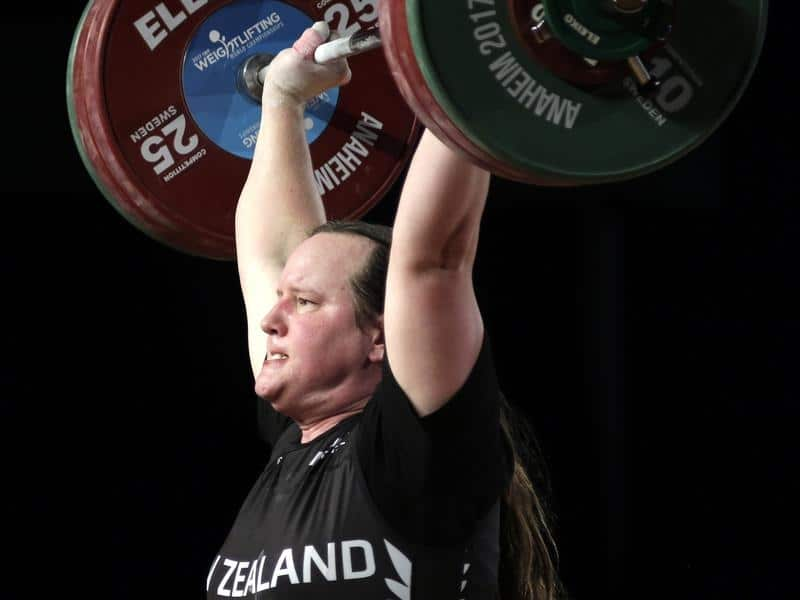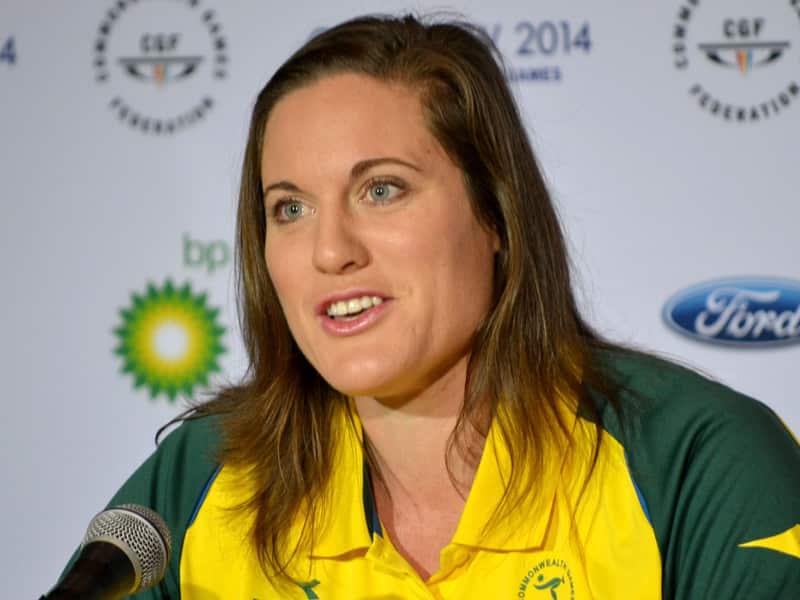New Zealand transgender weightlifter Laurel Hubbard has withdrawn from the Commonwealth Games women's +90kg weightlifting final due to injury.
Hubbard damaged ligaments in her elbow when attempting a Commonwealth record in the snatch.
"It's obviously a difficult time, but the one thing I'm happiest about is that I tried to reach for my best performance. This happens sometimes. That's sport," she told the ABC.
Hubbard had the backing of the governing body to compete at the Commonwealth Games, amid protest.
The gold medal favourite was cleared by the International Weightlifting Federation (IWF) to compete in women's tournaments last year.
Hubbard, 40, represented New Zealand as Gavin Hubbard before she transitioned. She took part in last year's world championships, winning a silver medal, after the IWF ruled she'd undergone at least a year of hormone therapy and had recorded a sufficiently low level of testosterone.
But Hubbard's inclusion in the Games had been met with anger.
Australian Weightlifting Federation CEO Michael Keelan wrote to the IWF and the International Olympic Committee (IOC) in an attempt to have Hubbard banned. Mr Keelan said the IOC needed to "clarify why the current criteria are considered appropriate, adequate and fair".
Samoan coach Jerry Wallwork joined the protest, saying Hubbard had an "unfair" advantage over other female rivals.
"A man is a man and a woman is a woman and I know a lot of changes have gone through, but in the past Laurel Hubbard used to be a male champion weightlifter," he told the ABC.
"The strength is still there and I think it's very unfair, and for all females it's unfair.
"The situation may have been accepted by the IOC but that won’t stop us from protesting, regardless of whether it’s against one of our lifters or not. It's just very unfair."

But on Monday, when asked about Mr Wallwork's controversial comments, Commonwealth Games Federation chief executive David Grevemberg backed Hubbard's inclusion in the competition.
"I think that the rules are the rules, and they all play by the rules ... that's one individual's opinion and perspective on that. I think there is probably plenty of perspectives and opinions," Mr Grevemberg said.
"Today, we are looking at a great competition that is going to be happening and we are going to be supporting that competition, which is in accordance with the rules of the sport," he added.
Mr Grevemberg said team New Zealand has done tremendous work to protect Hubbard's welfare during the controversy, but said the weightlifting community needed to discuss how to better manage these issues.
"The International Weightlifting Federation needs to really take a look at how it is managing the discourse around this. There is no question this is something that members have expressed various opinions on and it is something the weightlifting community really needs to come together and have some robust debate on where it needs to go," he said.

Mr Keelan, the Australian Weightlifting Federation, and a representative for the New Zealand team refused to comment when contacted by SBS News.
Hubbard, who transitioned in her mid-30s, has not commented on the controversy.

